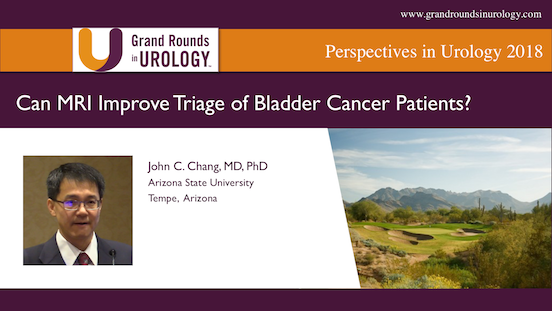Can MR Imaging Help Triage Bladder Cancer Patients?
John C. Chang, MD, PhD, examines the potential of MRI for staging bladder cancer, emphasizing MRI’s facility in differentiating between muscle invasive and non-muscle invasive bladder cancer (NMIBC). He also acknowledges that MRI scanning can lead to overstaging, and that CT can be effective for detecting higher stages of bladder cancer.
Read More

